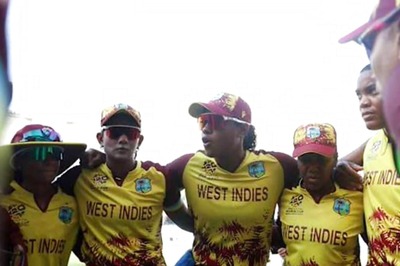
views
BANGALORE: The Karnataka State Pollution Control Board (KSPCB) has asked small textile units to shift to eco-friendly dyes. It has also asked all textile dyeing units to come together and construct an effluent treatment plant in the city. In a workshop organised for textile unit owners on Wednesday, KSPCB attempted to spread awareness on the impact of extensive usage of chemical and hazardous materials for dyeing. Six months earlier, KSPCB had issued notice to 500 units to shutdown for using hazardous substances. These were mostly small household units that use chemicals and large quantities of water. The water was then discharged into the BWSSB’s sewage pipes damaging the underground drainage system.To overcome this issue, KSPCB suggested some remedies at the workshop. Environmental Officer Nanda Kumar said, “We are planning to get these 500 units together so that the waste and the effluents can be collected at one place. Currently, we have given them an action plan. Firstly, they have to come up with a plan to collect the waste. Secondly, they have to make arrangements to shift the waste to a common effluent treatment plant.” However, the unit owners were not very happy with the suggestions. Tausief Ahmer, who runs a small household factory on Mysore Road, said, “It is difficult to execute their suggestions as most people working in these units are illiterate. I have my factory at Mysore Road and somebody else has it 30 kms away. So how feasible is the solution? There will be disagreements and not all will agree to shell out so much money.”In fact the unit owners have been asking the Government to allot sufficient space on the city outskirts for some time now. Prasanna Kumar, president of Suvarna Karnataka Silk Jobs Works Cottage Owners’ Association, said, “We have sent a proposal requesting the Textile Minister and the Chief Minister to relocate all units to the outskirts of the city. Currently they are scattered in the heart of the city in places like Cubbonpet.”“Closure of this cottage industry will perish other related industries too. My contention with the authority is that they should try to help us. Give us space to set up our factories, provide subsidised loans, and supply subsidised chemicals. The government can then create a common effluent treatment plant. To make this a reality will take some time, so the Chairman is asking us to arrive at a temporary solution now,” he adds. Chairman of the KSPCB A S Sadashivaiah said, “I want the association to come together and give us an action plan within 15 days. We will help them in every possible way.”
















Comments
0 comment